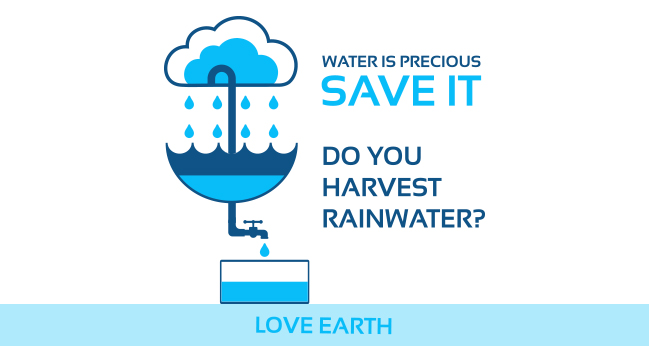Pimpri-Chinchwad uses Rainwater Harvesting to Battle Water Woes
Summer has brought water woes to a lot of housing societies in Pimpri Chinchwad, which makes citizens spend lakhs of rupees on tankers. One culture in Pimple Saudagar has revealed such wasteful expenditure could be curbed. Roseland Residency executed a rainwater harvesting job on its assumptions and is now reaping the harvest of its foresight. The society is spread across 12 acres.
Chairman Santosh Maskar stated the overall daily need of water presently is 10 to 12 lakh litres, but they get just 70,000 to 80,000 litres every day from PCMC.
“In 2009, we began implementing rainwater harvesting to recharge groundwater so we could draw from the borewells and decrease our reliance on tankers. The pilot project was used in six buildings for Rs 2.5 to Rs 3 lakh. On executing the project, the cost is to Rs 40,000 each construction. We do not require any water tankers in the summertime,” said the chairman.
Rainwater harvesting is a way of collection and storage of rainwater in organic reservoirs or tanks, or the infiltration of surface water to subsurface aquifers (until it’s lost as surface runoff). One way of rainwater harvesting is rooftop harvesting. Together with rooftop harvesting, any surface — plastics, tiles, metal sheets, but not palm or grass foliage — may be used to intercept the flow of rainwater and supply a family with storage and drinking water. Other applications include water for livestock, gardens, and irrigation, etc..
Rainwater harvesting supplies a different water source. In places where water is difficult or expensive to find, rainwater harvesting is a supply of water that is fresh. In developed nations, rainwater is harvested to be utilized as a supply of water as opposed to supply, but the harvesting of rainwater may reduce utilization amounts or a family’s water expenses. Rainwater is safe to consume. Rainwater can also be independent of salinity or pollutants within soil water, raising the value of mobile drinking water accessible when rainwater harvesting is utilized. It may be used for cleaning, washing clothes etc.
The achievement of Roseland Residency could be reproduced by all housing societies. Ashok Shinde, chairman of Kunal Icon housing society, stated, “Our society has 450 apartments and 40-row homes. Each of the four borewells from the society dries up in February, and now we must rely on water tankers to our everyday needs from February to May.”
Anil Deore, secretary of Rosewood Apartment and Condominium co-operative society, stated, “Our society is just three years old. It’s 350 apartments, and we get just 35,000 litres of water every day from PCMC rather than the 1.25 lakh we need. In 2016, we needed to get tankers. We invest Rs 2 lakh a month .”
Both housing societies employed rainwater harvesting facilities in the assumption that water can be yielded by their borewells to recharge groundwater levels, but didn’t gain from it.
Maskar stated they’d assist home societies in Pimple Saudagar to implement rainwater harvesting and prevent the squander of lakhs of rupees on water tankers.




